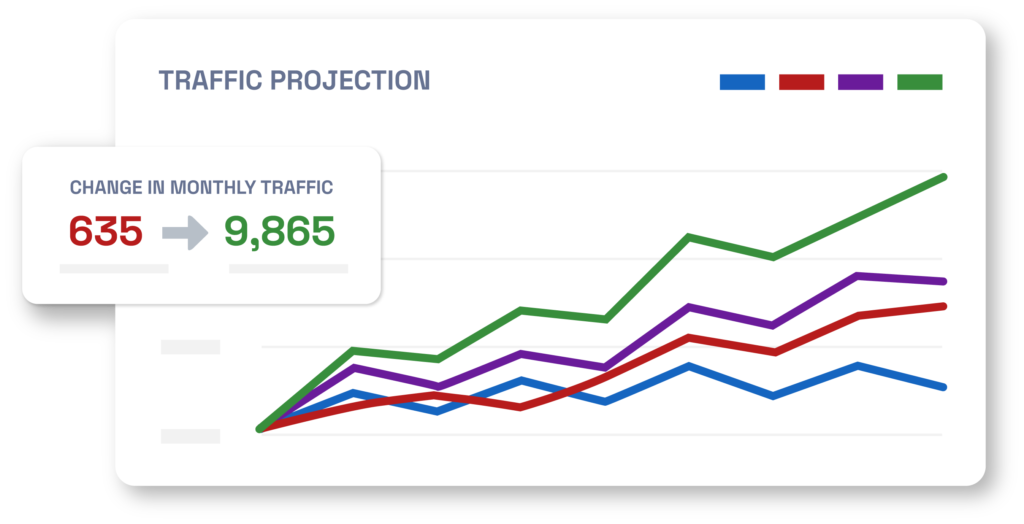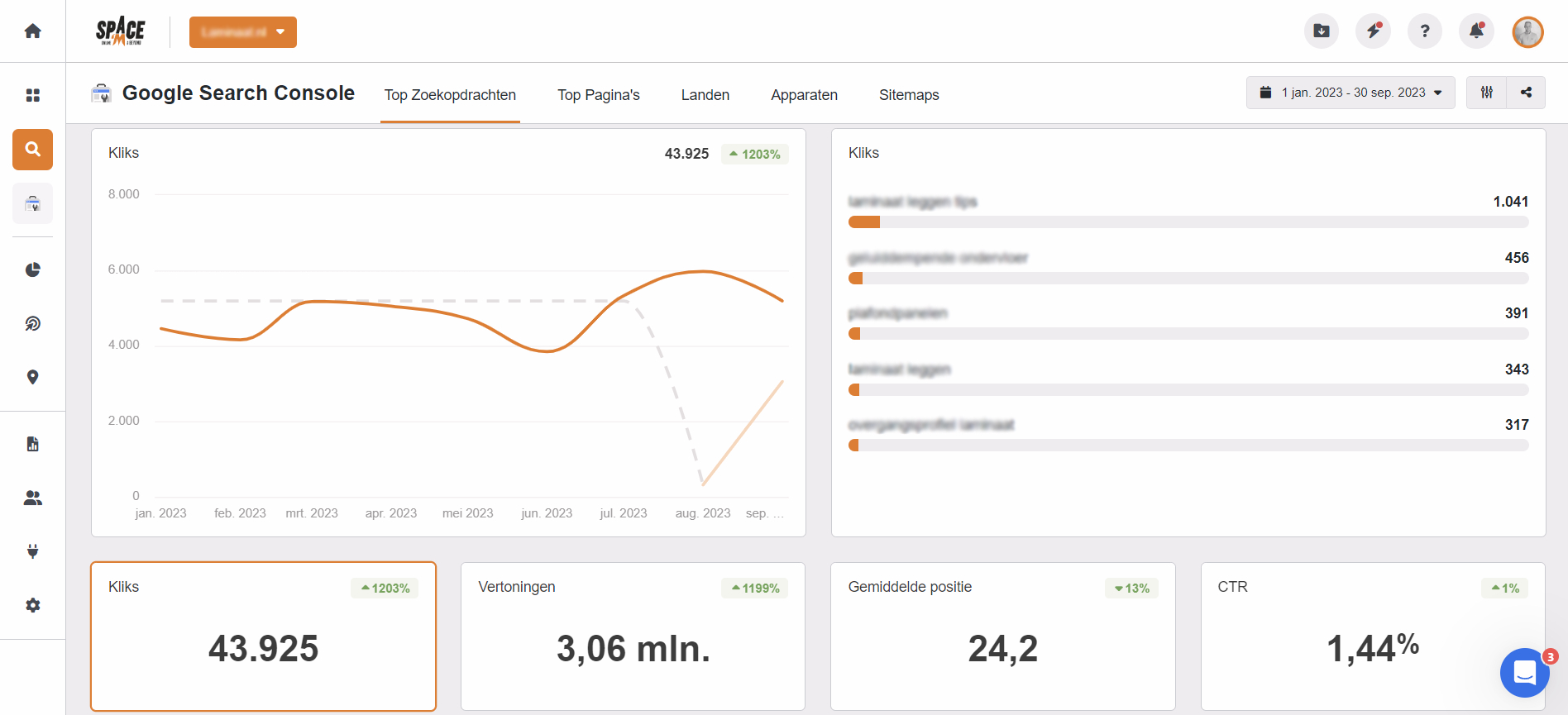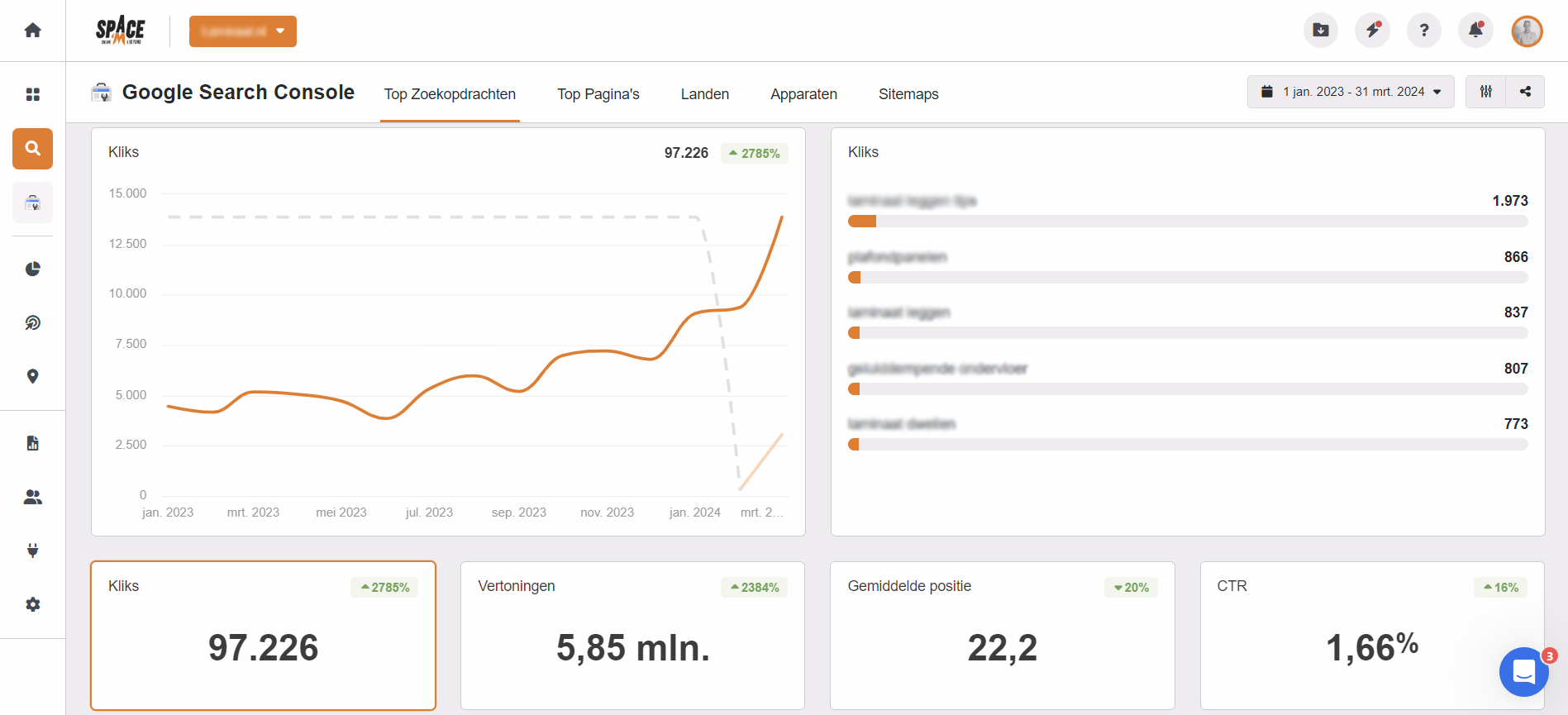Heb je al stappen ondernomen om je website of webshop internationaal uit te breiden, maar blijven de verwachte resultaten uit? Dit kan verschillende oorzaken hebben, gerelateerd aan diverse onderdelen en aspecten van je website, zoals de inhoud, gebruikerservaring en meer.
Een internationale SEO-audit helpt bij het identificeren van optimalisatiemogelijkheden voor de internationale SEO strategie, door een grondige analyse van specifieke secties van je site die gericht zijn op verschillende landen. Zo ontdek je waar de grootste kansen liggen om je online aanwezigheid in het buitenland te versterken.
Wat is een internationale SEO-audit?
Een internationale SEO-audit lijkt in veel opzichten op een standaard SEO-audit, maar is speciaal afgestemd op websites die zich richten op meerdere landen buiten Nederland. Het doel van zo’n audit is om nauwkeurig te onderzoeken hoe een specifiek deel van de site, dat gericht is op een bepaald land, presteert in zoekmachines.
Dit omvat een diepgaande analyse van inhoud, technische aspecten, en backlinks, allemaal met het oog op het identificeren van optimalisatiemogelijkheden. Door lokale factoren zoals taal, culturele nuances en zoekgedrag in acht te nemen, biedt een internationale SEO-audit waardevolle inzichten die helpen om je website beter af te stemmen op de specifieke behoeften en verwachtingen van internationale doelgroepen.
Waarom een internationale SEO-audit uitvoeren?
Het uitvoeren van een internationale SEO-audit is cruciaal voor bedrijven die hun online aanwezigheid willen vergroten en succesvol willen zijn op de internationale markt.
Deze audit stelt je in staat om specifieke problemen en kansen binnen je website te identificeren die van invloed kunnen zijn op je vermogen om internationaal te ranken in zoekmachines. Enkele van de belangrijkste redenen om een internationale audit uit te voeren zijn:
- Verbeterde zichtbaarheid: een SEO-audit helpt bij het identificeren van kansen om de zichtbaarheid van je website in verschillende landen te verbeteren, door ervoor te zorgen dat je site voldoet aan de lokale zoekmachine-algoritmes en -voorkeuren.
- Concurrentievoordeel: door inzicht te krijgen in hoe je website presteert ten opzichte van lokale concurrenten, kun je strategieën ontwikkelen om je onderscheidend vermogen te vergroten en een voorsprong te nemen.
- Gebruikerservaring: de audit kan problemen aan het licht brengen die de gebruikerservaring voor internationale bezoekers beïnvloeden, zoals laadtijden, mobiele compatibiliteit en taalbarrières.
- Lokale relevantie: het zorgt ervoor dat je content, meta-tags en andere SEO-elementen zijn geoptimaliseerd voor de specifieke culturele en taalkundige context van elk doelgebied, wat de relevantie en aantrekkelijkheid voor die markten verhoogt.
Kortom, het uitvoeren van een internationale SEO-audit is een essentiële stap voor elk bedrijf dat zijn digitale voetafdruk wil uitbreiden naar nieuwe internationale markten. Het biedt een gedetailleerd overzicht van hoe je website presteert in verschillende landen en geeft richting aan hoe je de SEO-strategie kunt verbeteren voor betere resultaten.
Naar welke onderdelen wordt er gekeken bij een internationale SEO-audit?
Bij een internationale SEO-audit wordt een breed scala aan onderdelen van je website onder de loep genomen, met speciale aandacht voor die aspecten die van invloed zijn op de SEO-prestaties van je site op internationale markten.
Deze onderdelen omvatten zowel de inhoudelijke als de technische aspecten van je website, evenals externe factoren zoals backlinks. Hier is een overzicht van de belangrijkste gebieden die worden beoordeeld tijdens een internationale SEO-audit:
- Technische SEO
- On-page SEO
- Off-page SEO
Door deze elementen grondig te analyseren, kan een internationale SEO-audit onthullen welke gebieden van je website verbetering behoeven om beter te presteren op internationale markten. Dit stelt je in staat om gerichte optimalisaties door te voeren die je zichtbaarheid, verkeer en conversies op deze markten kunnen vergroten.
Technische SEO-audit
Een technische SEO-audit is cruciaal voor internationale en meertalige websites en richt zich op de onderliggende infrastructuur van je site. Deze audit helpt bij het identificeren van technische barrières die de indexering, prestaties en zichtbaarheid van je website op internationale zoekmachines kunnen beïnvloeden. Belangrijke aspecten die worden onderzocht omvatten:
- Laadtijden: snelle laadtijden zijn essentieel voor een goede gebruikerservaring en SEO-prestaties. Trage websites worden lager gerangschikt door zoekmachines doordat ze slechter gecrawld kunnen worden.
- Mobiele optimalisatie: met een toenemend aantal gebruikers dat via mobiele apparaten surft, is het cruciaal dat je website responsive en mobielvriendelijk is.
- Paginastructuur en sitemaps: een logische structuur en duidelijke sitemaps verbeteren de crawlbaarheid van je site door zoekmachines.
- Redirects en interne links: correct geïmplementeerde redirects en een solide intern linknetwerk verbeteren de navigatie en distributie van paginawaarde (link equity).
- Integratie van afbeeldingen en video’s: geoptimaliseerde media dragen bij aan snellere laadtijden en verhogen de betrokkenheid, maar moeten correct worden geïntegreerd om prestatieproblemen te voorkomen.
De resultaten van een technische SEO-audit bieden waardevolle inzichten die je in staat stellen om de prestaties van je website te verbeteren, niet alleen in de ogen van internationale zoekmachines maar ook vanuit het perspectief van de gebruiker.
On-page SEO-audit
Een on-page SEO-audit richt zich op de elementen binnen je website die direct bijdragen aan de SEO-prestaties, met speciale aandacht voor hoe deze elementen zijn geoptimaliseerd voor internationale en meertalige doelgroepen.
Het doel is om ervoor te zorgen dat de inhoud en structuur van je website optimaal zijn ingericht voor zowel gebruikers als zoekmachines. De volgende componenten worden hierbij beoordeeld:
- Titels en meta-descriptions: deze moeten uniek, relevant en aantrekkelijk zijn, met correct gebruik van doelgerichte keywords om de klikfrequentie (CTR) te verhogen.
- Gebruik van koppen (H1, H2, etc.): een duidelijke hiërarchie en structuur in de content verbeteren de leesbaarheid en helpen zoekmachines bij het begrijpen van de belangrijkste onderwerpen van je pagina’s.
- Alt-tags voor afbeeldingen: het gebruik van beschrijvende alt-tags helpt zoekmachines te begrijpen wat de afbeeldingen voorstellen, wat essentieel is voor zowel de SEO als de toegankelijkheid van je website.
- Contentkwaliteit en -relevantie: hoogwaardige, relevante content die aansluit bij de zoekintentie van je doelgroep is cruciaal voor goede SEO-prestaties.
- Interne linkstructuur: een sterke interne linkstructuur helpt bij het verspreiden van link equity door je site en verbetert de navigatie voor zowel gebruikers als de crawlers van Google.
Door deze en andere on-page factoren te optimaliseren, verbeter je niet alleen de vindbaarheid en ranking van je website in internationale zoekmachines, maar zorg je ook voor een betere gebruikerservaring voor bezoekers van over de hele wereld.
Off-page SEO-audit
Een off-page SEO-audit onderzoekt de externe factoren die invloed hebben op de autoriteit en zichtbaarheid van je website op internationale zoekmachines. Deze audit richt zich op elementen buiten je website die bijdragen aan je online reputatie en vindbaarheid. Belangrijke aandachtspunten van een off-page SEO-audit zijn:
- Backlinks: de kwaliteit, kwantiteit en relevantie van de links die naar je website verwijzen, zijn cruciaal. Hoogwaardige backlinks van betrouwbare en relevante sites verhogen de autoriteit van je site.
- Sociale media signalen: de aanwezigheid en activiteit op sociale media kunnen de zichtbaarheid en betrokkenheid bij je doelgroep vergroten. Dit omvat het beheer van profielen en de interactie met gebruikers.
- Contentmarketing: het publiceren van waardevolle en relevante content op externe platforms kan helpen bij het opbouwen van backlinks en het verhogen van merkbekendheid.
- Mentions en beoordelingen: vermeldingen van je merk of website op andere sites, inclusief klantbeoordelingen, kunnen bijdragen aan je site’s reputatie en betrouwbaarheid.
De bevindingen van een off-page SEO-audit bieden waardevolle inzichten in hoe je de externe aspecten van je SEO-strategie kunt verbeteren.
Het uitvoeren van een internationale SEO-audit is geen eenmalige taak
De digitale wereld is altijd in beweging, met regelmatige updates van zoekmachine algoritmes, wijzigingen in gebruikersgedrag, en de voortdurende ontwikkeling van je eigen website. Daarom is het essentieel om regelmatig SEO-audits uit te voeren.
Als je website groeit, voeg je nieuwe content toe en breid je mogelijk uit naar nieuwe internationale markten. Elke toevoeging of wijziging aan je site vereist aandacht om ervoor te zorgen dat deze voldoet aan de beste eisen voor SEO. Dit geldt ook voor technologische ontwikkelingen.
Daarnaast is het belangrijk om je bewust te zijn van het veranderende concurrentielandschap. Wat vandaag werkt om jouw website bovenaan de zoekresultaten te krijgen, kan morgen verouderd zijn door de acties van je concurrenten. Door regelmatig een SEO-audit uit te voeren, kun je je strategieën aanpassen en verbeteren om competitief te blijven.
Regelmatige SEO-audits stellen je niet alleen in staat om bij te blijven met deze veranderingen, maar bieden ook kansen om proactief verbeteringen door te voeren die je online zichtbaarheid en engagement kunnen verhogen. Het is een cruciaal onderdeel van het onderhouden van een sterke en effectieve aanwezigheid op de internationale markt.
Internationale SEO-audit als basis voor een internationale SEO-strategie
Het uitvoeren van een internationale SEO-audit is niet alleen een essentiële stap in het identificeren van verbeterpunten voor je website; het legt ook de fundamenten voor een sterke internationale SEO-strategie.
Zonder een grondige audit loop je het risico dat je strategie niet volledig is afgestemd op de specifieke eisen en kansen van elke markt waarop je je richt. Dit kan leiden tot gemiste kansen in termen van zichtbaarheid, verkeer en conversie.
Een internationale SEO-audit biedt een diepgaand inzicht in verschillende cruciale aspecten van je website, waaronder technische SEO, on-page en off-page elementen, en gebruikerservaring. Deze inzichten zijn onmisbaar bij het vormen of versterken van je internationale SEO-strategie.
Ze helpen bij het identificeren van specifieke actiepunten, zoals het optimaliseren van content voor lokale zoekopdrachten, het verbeteren van de technische prestaties van de site voor gebruikers wereldwijd, en het bouwen van een sterker backlinkprofiel met internationale autoriteit.
Het niet regelmatig uitvoeren van internationale SEO-audits kan resulteren in een verouderde strategie die niet langer voldoet aan de nieuwste SEO-praktijken en -richtlijnen. Dit kan je website’s vermogen om te concurreren op de internationale markt aanzienlijk verminderen, resulterend in lagere rankings, verminderd verkeer en, uiteindelijk, verloren omzet.
Voor welke landen kan ik een internationale SEO audit doen?
Bij Space’M Online bieden we uitgebreide SEO-diensten aan voor diverse target landen. Hoewel we ons voornamelijk richten op SEO in Europa, zijn onze diensten eveneens beschikbaar voor markten buiten Europa waarmee we een breed scala aan bedrijven elke maand aan meer leads, sales en omzet helpen.
Wil je keihard groeien, en heb je internationale ambities? Onderzoek dan zeker een internationale SEO strategie om heel de wereld te bereiken.
Ons team van SEO-experts heeft uitgebreide ervaring in het werken in diverse markten en begrijpt de unieke uitdagingen en kansen die elk land biedt. Staat het land waar jij naartoe wilt uitbreiden er niet tussen? Neem dan gerust contact met ons op om de mogelijkheden en kansen te bespreken.



















